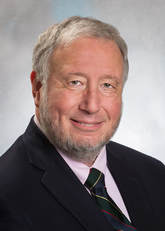 Tags: Detailing Visits, Evidence-Based Medicine, Materials Development, Jerry Avorn Here’s the good news: academic detailing is becoming so widely accepted that everyone wants to help provide the evidence that is disseminated. That’s also the bad news; worrisome examples range from the grotesque to the sinister. One eminent health policy expert wanted to know how much it would cost to put together a nationwide academic detailing program (my heart leaped) that would be underwritten by the pharmaceutical industry (dammit). Prescription drug management (PBM) companies now offer so-called academic detailing services as part of their contracts with payors to oversee drug choices and spending. Sounds good until one realizes that a large chunk of PBM revenue come from payments by manufacturers to move market share to their products. So much for communicating evidence that is neutral, unbiased, and non-commercial. You’d think we’d have learned our lesson by now. Do universities or insurers or government fail to offer enough continuing education about prescribing? No problem, drugmakers will be more than happy to fill the gap, either for free or at amazingly low cost…. often with really great food. That local clinical expert who shows up at Grand Rounds to provide an overview of all the new treatments for diabetes, at no cost to the hospital? Don’t ask who’s paying him to be there. And those convenient smartphone apps that provide so much handy dosing information for any drug you can think of? All you have to do is read the commercial messages that pop up on your way to the data, as the vendor promises its pharmaceutical sponsors the chance to "embed your brand message at multiple points across the care continuum."  There is a solution to the concern about who’s providing the content for academic detailing programs, and it’s much easier than figuring out whether a particular Facebook ad is brought to you by a Russian bot. Just expect that any purveyor of AD information will reveal clearly all the financial ties it and its authors have with any drug or device maker, in relation to program sponsorship as well as the creation and editing of the clinical content. After years of being misled about hidden data on adverse events or failed studies, we’ve developed a higher set of expectations about disclosing all information about clinical trials, and the need to reveal authors’ financial ties for published studies. Those same higher standards must also be applied to academic detailing programs, so that its audiences will know whether the material is the carefully vetted work of a team of unconflicted reviewers who don’t work for any manufacturers, or is instead yet another terribly sophisticated new way to market particular products. Want more? Peruse the archive of Jerry's pieces here on DETAILS. _____________________________________________________________ Biography.
Jerry Avorn, MD | NaRCAD Co-Director Dr. Avorn is Professor of Medicine at Harvard Medical School and Chief of the Division of Pharmacoepidemiology and Pharmacoeconomics (DoPE) at Brigham & Women's Hospital. A general internist, geriatrician, and drug epidemiologist, he pioneered the concept of academic detailing and is recognized internationally as a leading expert on this topic and on optimal medication use, particularly in the elderly. Read more.
0 Comments
Leave a Reply. |
Highlighting Best PracticesWe highlight what's working in clinical education through interviews, features, event recaps, and guest blogs, offering clinical educators the chance to share successes and lessons learned from around the country & beyond. Search Archives
|
